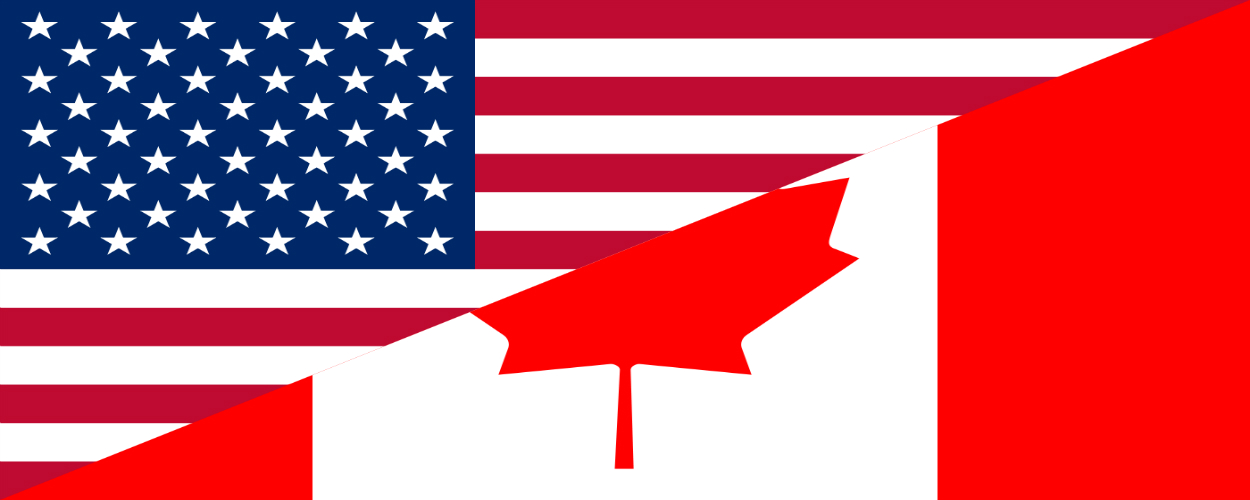Canada and the United States are in many respects two very similar countries. Founded as white colonial settler societies, both are now developed capitalist democracies, with functioning multi-party (more or less) politics. In some very important ways, though, Canada and the US are very different countries. The United States has developed a national attitude of rugged individualism, premised on distrust of government and the notion that everyone can succeed and climb through society if they work hard enough. Canada is much more communitarian, turning more to society as a whole, with an attitude of trust in, and deference to, government. Why is this? What made our two countries so similar yet so different?
Obviously it’s impossible to know for sure, but one widely accepted answer flows from “fragment theory”. First advanced by Louis Hartz, an American political scientist (and big fan of American exceptionalism), fragment theory says that colonial settler societies (the United States, Canada, South Africa, Australia and New Zealand particularly) derive their nature from whichever segments, or “fragments” of society emigrate to, and settle in, the new country. Hartz was particularly interested in why the United States has such a relative lack of ideological politics, lacking a strong distinction on economic policy between the (relative) left and (relative) right, but fragment theory can go beyond this to explain more general differences between settler societies.
America was founded by religious fundamentalists. This may not seem immediately obvious, since the myth of Americas founding says that the Pilgrims fled an oppressive England to seek freedom in America. Sort of, but not quite. The Pilgrims were for the most part radical protestant fundamentalists, following a dogmatic and severe interpretation of Christianity. Yes, the English government sought to regulate their religious practices, but primarily it sought to moderate them. At any rate, the protestant fundamentalists wanted to establish a paradise in the Americas, their shining city on a hill, and that influenced how they shaped their early settlements, which have in turn guided America’s social development for centuries.
That protestant fundamentalists seeking to escape government controls founded America explains a lot about how America came to be as it is. It explains the distrust of government, the premium placed on religion and the valuing of the hardworking individual. It also explains the relatively constrained political spectrum in America. The die was cast in favour of small and limited government a very long time ago.
Canada has a very different foundation story. The first permanent European settlements in Canada were French, founded under the patronage of powerful French feudal nobles, and very strongly represented the exporting of fragments of feudal French society, including an extremely powerful Catholic Church and deeply embedded deference to authority. In Quebec this held true until the Quiet Revolution in the 1960s broke open Quebec society and dramatically toppled the Church from its position of prominence. In English Canada, settlement was also under the aegis of powerful members of the British nobility. The large-scale settlement of English Canada did not begin until almost 100 years after settlement in America, and given its sanction by the elite resulted in very different groups coming to Canada. Canada wound up as a pastiche of French feudal society and the forelock-tugging English society of the 18th century (both working hard to keep the aboriginal people from having any say over a country that had been theirs only a few hundred years before).
In Canada, the fragments that made up settler society resulted in a focus on community, the abnegation of individualism in favour of society as a whole. Canada has slowly become more liberal (in the classic, not American, sense) and individualistic under the pervasive influence of America’s culture next door, but it retains a heterogeneous and communitarian streak that marks it off as different from its larger neighbour. In Canada the government tends to be trusted to look after the general well-being, and that trust results in Canadians being willing (often too willing) to defer to government decision-making, rather than to protest it.
All of this is, of course, a major simplification of Hartz’s theories, and their application to the differences between the United States and Canada. If you want to know more about it, Hartz’s book The Founding of New Societies makes an interesting, if very dense, read.
Image in the public domain, via Wikimedia Commons.
